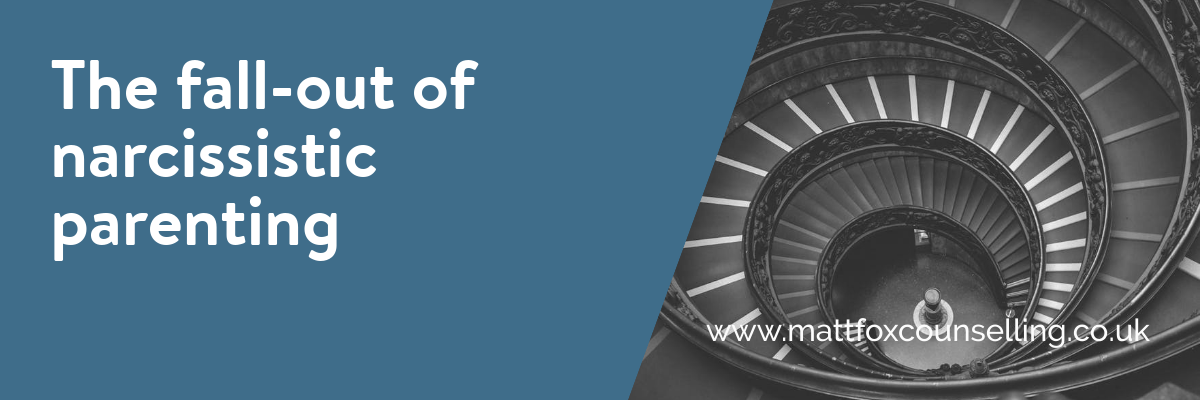You’ve been meaning to get earlier nights, but 3 box sets later and it’s 2am again.
That healthier eating? Ended with the giant box of Celebrations.
Or more extreme. That job you had worked so hard to get? You pull out the day before starting, thinking it’s not really you.
That tooth niggle. Not worth looking at. Until it becomes a fullblown dental emergency.
Self-sabotage and narcissistic abuse
Welcome to the world of self-sabotage. If you’ve been parented by a narcissist or experienced childhood emotional neglect, this is probably a very familiar place.
This post will take you through:
- What self sabotage is
- Why you self sabotage
- Practical ways to stop self sabotaging
The truth behind self-sabotage
If you had to boil it down:
Self sabotage is the tendency to undermine you best intentions, to pull the rug from under your own feet, so to speak.
It can happen in many ways:
- Delaying or procrastinating from important decisions
- Eating or living unhealthily
- Doing things that are harmful to your physical self
- Doing things that are harmful to your emotional self
Sometimes, self-sabotage is a conscious act. You choose to do something, even though you know it won’t help you or make you feel better. Binge eating or TV is a good example.
You can sit there and think, I know this is bad for me, but I can’t help myself. Or I’ve had this much, may as well get to the end of the bottle or finish the packet. I’ll put it right tomorrow.
But most of the time, self-sabotage isn’t conscious at all. If it were so easy to catch yourself in the act, sure you’d stop it, right? Or maybe as the examples above show, even if you know it, it’s not necessarily easy to put the breaks on.
More on that later.
Unconscious sabotage
The reason you do it without even realising:
Unconscious sabotage
You probably know that most self-sabotage is unconscious. But how does it play out? Here are some examples:
Getting in the way of your success - you’re on the threshold of achieving something when you give up, seem to flounder or cede the task to someone else. Or become forgetful at a crucial moment, such as leaving your passport behind on the way to a holiday.
Stopping getting your needs met - you lose your voice when it comes to getting what you need or something stops you from speaking your mind. Such as not speaking up at a critical time, even though you know something is wrong.
Acting out in harmful ways - you do things that a fundamentally unhealthy for you physically or emotionally, which mean you don’t get what you need. You might get so drunk the night before an important meeting. Eating something comforting which doesn’t agree with you, just before doing something you enjoy.
Getting ill - this is worthy of post in itself, but finding yourself poorly, listless or low energy, just when you were about to do something great for yourself is another common form of self-sabotage,
Losing something or breaking it - keys, phone, jewellery, money, passport. If it has value, and you need it, self-sabotage can lead you to losing it.
Getting lost or arriving late - need to be somewhere at a certain time? Self-sabotage will send you the wrong way. You’ll get stuck in a one way system or completely miss a turning. Yes that happens to everyone. But if it’s a regular occurence, maybe self-sabotage is at play.
It hurts. So why does it happen?
At this point, you might be wondering:
If it’s unconscious and it doesn’t get you where you want to be, why on earth do you do it?
There can be a whole host of reasons, but if you were parented by a narcissist, then self-sabotage is highly likely to be on the menu.
If you were parented by a narcissist, then self-sabotage is highly likely to be on the menu. #parentalnarcissisticabuse Share on XWhy? Well as a child, you will have learnt that you needed to adapt to get you parent or caregiver’s approval. You might have had to be the good girl or boy, the high achiever, the care taker. Or sunny, happy child, however you really felt.
The thing is, if you have to play these roles, you start to lose two things:
A sense of who you really are, when you aren’t playing these roles
A belief that you are loved and valued for being who you really are
Make no mistake, you may be a high achiever or a good person, or a great care taker too. But that’s only part of the picture, for any person. Where there is light, there is also shadow.
You most probably had your right to be yourself taken away to fulfil the expectations of your parent. No space to be messy, rageful, imperfect. A child, in short.
Because the consequence of not being yourself was highly risky for your child self. Emotional abandonment. And sometimes worse than that: physical or emotional abuse.
No wonder you stuck to mum or dad’s rules. Anything less could have brought emotional armageddon for you.
No wonder you stuck to mum or dad’s rules. Anything less could have brought emotional armageddon for you. #parentalnarcissisticabuse Share on XThe fall out of emotional neglect and narcissistic parenting
When you live that way as a child, you could be pretty sure that in your adult life, you will experience at least one of these:
Low self esteem - it’s hard to believe you’re worth much, count or are even loveable for who you are when you’ve had to mould yourself to fit someone else’s needs or image. Low self-esteem is often the outcome of narcissistic parenting.
Low self confidence - along side-low esteem is low self-confidence. Although you might push yourself and be a high-achiever, there is a nagging doubt within you that somehow others are better at ‘this’ or that it’s chance or a fluke that’s got you where you are.
Anxiety - the unpredictability of growing up in a narcissistic home situation can burn anxiety into your way of being. Anxiety is a worry about what might happen in the future. It can also mask anger, fear and sadness. Not knowing how a parent was going to respond to you would put you into a state of high alert. That can come with you right into adulthood.
Social anxiety - low self-confidence and esteem can translate into powerful social anxiety. Somehow you feel you can’t fit it, will be discovered for being a fraud, fake or simply not being interesting to others. When you grow up with a narcissistic parent, second guessing becomes second nature. You find it hard to have an inner compass, which sets your direction and also tells you that you are an equal to every other person you encounter in your life
Depression - often someone who’s had a narcissistic parent, will experience some form of depression. It can have many different roots, but most commonly I see it as a form of unexpressed anger and rage towards their parent. That rage couldn’t safely be experienced when you were a child. It would have taken you into all sorts of trouble, so best to bury it deep. Where it still probably lives today, occasionally exploding out.
Feelings avoidance - anything to get away from the difficult feelings. Work. Sex. Alcohol. Shopping. Facebook. Exercise. Eating. Drugs. You name it, it’s probably a way of avoiding despair, longing, sadness, rage.
Rigidity / control issues - in the face of an engulfing and overwhelming parent or one who really ignored your needs (both behaviours of a narcissistic parent) you probably tried to control whatever you could in your life to get back a bit of safety. Now that could play out in many different ways. Having to have your way. Needing to be on time. Eating certain food. Feeling enormous stress when things don’t go your way.
Impostor syndrome - a variation on social anxiety. Feeling deep down you don’t deserve your success, your status, your role, whatever it is: manager, colleague, author, mum, dad, leader...
Never getting your needs met or heard - it all boils down to this. Not really getting your needs met or heard as a child. And falling into friendships, relationships and jobs where the same thing happens. It goes hand in hand with people pleasing, avoiding confrontation, passive aggression, anxiety and depression. Quite a cocktail to be getting on with, right?
The golden ticket: How to stop the self sabotage
I wish there was a quick fix or magic wand fix for this. But there isn’t. That said, don’t lose heart or hope, because I see so many people make changes here. First small victories and the bigger and more consistent ones.
How do you start?
It begins with awareness and observation: the foundation of all change. If you can begin to track how you feel when requests are made of you. What’s going on when you’re making a choice.
Your body will be a mine of information:
Do you feel heavy or low energy?
Do you feel like you’re excited and hyper?
Do you feel numb?
Your mind might be setting you up:
Is your critical voice giving you a hard time?
Do you hear a parent’s voice undermining you or a partner’s or friend’s?
Your feelings might be telling you something:
Are you sad, fearful or anxious?
Getting a handle on your whole experience, with awareness and compassion - you’re doing your best here and learning new skills - is a great starting point to stop self-sabotage in its tracks.
Want to roll your sleeves up and change this self-sabotage thing?
Then there are some very practical things you can do.
It starts with bringing your situation to mindful awareness.
For example, if you’re going for a new job, take some time before doing the application or interview to Identify your goals.
Here are some practical steps you can take. You can apply these to any other scenario where you know you might trip yourself up:
1 Make a list of all the things you have going for you on in this situation.
This is about identifying all the positive energy behind your decision. Call it connecting with your power, if you will.
2 Identify all the hazards and pitfalls.
This next piece is crucial. You need to spend some time identifying what the saboteur part of you might do or say.
Make a page with two columns.
In the first column list out all the beliefs, actions and thought you might put in place to derail you in your endeavour.
For example, ‘I make myself late for big appointments’ ‘I lose things at the last minute’ ‘I tell myself they’re not really interested in me’ ‘I tell myself there are better qualified people out there.’
Don’t spare yourself from this examination. You need to get it all out there.
3 Review and reflect
When you’re done, take a moment to review what’s on your list. Notice how it makes you feel: angry, self-critical, depressed, combative. Whatever it is, take note, without judgment if you can.
4 Ground yourself
Next, find a way to centre yourself, feet on the ground, settling into your breathing. Close your eyes if you wish. Hold yourself in that space, just paying attention to your breathing for a few moments.
5 Connect with your inner wisdom and confidence
When you’re ready, imagine a beautiful golden light descending from above you, penetrating through your head and then radiating through your body. It’s the light of true self knowledge and power.
Allow the feeling of the light to persist and when it feels right, open your eyes and go back to your piece of paper. Trust that you have all the answers you need.
In the second column list a specific action or more you can take to counter-act the sabotage.
For example: ‘The night before, I will put everything I need by the door.’ or write an affirmation ‘I am at least the equal of all the others applying for this.’
By bringing your sabotage to mind in this way, you can change your relationship to it.
That's all good but what about... eating, TV, Facebook and other behavioural sabotage?
For other types of sabotage, such as binge eating or TV watching, you can use a similar technique.
As you start to slip into the place of defeat or sabotage, see if you can catch yourself for a minute.
Ask yourself this question:
What do I really need right now?
My guess is that it isn’t more chocolate or TV or shopping.
Those provide temporary relief, but often bring guilt and shame in their wake.
With the question ‘What do I really need right now?’ you might unearth the deeper need:
I’m lonely and need some contact with others
I’m sad and I’m finding hard to open up to my sadness
I’m feeling anger or rejected and it’s hard to allow that
The acting out comfort strategies of sabotage are usually about putting a lid on those deeper, more difficult and painful feelings.
Let me share a secret with you
Gently giving yourself permission to welcome these needs in, even briefly, will change your relationship to them. I promise. I see this time and time again.
You may flee your aloneness, but stepping into it, allows it to pass. And so with all these other feelings.
If you struggle with self-sabotage...
I help people just like you, move past their self-sabotage and people-pleasing, to get back into their self-confidence and power.
Get in touch for a free initial consultation by calling or texting me on 07443 640556 or emailing me.




